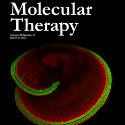Volume 10, Issue 3: March 2021
Editorial Team
Edith Pfister, Ph.D. – Editor, The Vector
Karen Bulaklak, Ph.D. – Associate Editor, The Vector
Jon Brudvig, Ph.D. – Junior Editor, The Vector
Inside This Issue
Leadership Message
In Memoriam
Breaking Through
From Molecular Therapy
Society News
Career Center
Public Policy
Industry News
Leadership Message
Remembering Two Gene Therapy Pioneers
 Hello ASGCT Members,
Hello ASGCT Members,
I’m excited to remind you all that the first day of the 24th Annual Meeting is exactly two months from today! Since last month, we have made some important announcements to show our appreciation for your membership and I hope they will allow you to continue receiving benefits this year.
First, we have extended the membership renewal deadline for all members. You now have until April 30 to renew your membership. We have also decided to waive the full cost of 2021 Annual Meeting registration for all Associate Members. If you know any students, postdoctoral fellows, lab assistants, or lab technicians in the field, please encourage them to join ASGCT as an Associate Member and they’ll be able to attend this year’s meeting for free!
Finally, we’re offering more award and professional development opportunities this year. We have doubled the 2021 Career Development Awards to $100,000 each and all members are eligible to apply beginning in June. Additionally, we have created three new research funding opportunities to promote equity in the field that you can read about on our blog. The application period for these Diversity and Inclusion Awards will also open in June. Starting next month, you can access free professional development content live and on demand. The schedule, though subject to change, is as follows:
- April 16, 2021: Successful Strategies for a Virtual Meeting
- June: Academic Writing: Dos and Don’ts
- July: “How To” with AAV Vectors
- August: Grant Writing
- September: Top 10 Areas of Study in Gene/Cell Therapy
- October: “How To” with Cas 9 and CRISPR
To conclude this message, I hope you’ll take the time to read the tributes below that honor two pioneers in gene therapy who recently passed away. Mavis Agbandje-McKenna, Ph.D. was the recipient of the 2020 ASGCT Outstanding Achievement Award, and Arthur Nienhuis, M.D., was a past president of ASGCT. We are all fortunate for their groundbreaking work in this field and I offer my deepest condolences to their families, friends, and colleagues.
Take care and stay safe,
Stephen J. Russell, M.D., Ph.D.
ASGCT President
In Memoriam
 Mavis Agbandje-McKenna, Ph.D. has passed away after a long battle with amyotrophic lateral sclerosis at the age of 57. We write this tribute on behalf of her commitment and contributions as a mentor, collaborator, and colleague.
Mavis Agbandje-McKenna, Ph.D. has passed away after a long battle with amyotrophic lateral sclerosis at the age of 57. We write this tribute on behalf of her commitment and contributions as a mentor, collaborator, and colleague.
Her path to a career in science began with her escape from civil war in Nigeria as a child and schooling in London where she earned her Ph.D. in 1989. There she met her lifelong research partner and husband Robert McKenna. In this partnership, they set off on another uncharted journey to solve the mystery of the viral structure for both a pathogenic virus and other unique members of the Parvovirus family, especially the key member, adeno-associated virus (AAV). In these early days there was only the faint notion that AAV would someday transform the landscape of therapy for genetically defined diseases. She and Rob came to the University of Florida in 1999 when the gene therapy program was just getting underway and the crosstalk between basic and translational scientists was the oxygen that fueled the early discovery of AAV basic science and clinical translation.
Mavis was not only a world class scientist, but her character and passion were also unparalleled, especially in her unending search for new knowledge. She and Rob pioneered the detailed structure of parvoviruses which contributed to major advances in the field of gene therapy. Using x-ray crystallography and cryo-electron microscopy they mapped the surface structures and symmetry of the viral capsid proteins that define the way various types of AAV interact with cellular receptors. This structural map led the McKenna lab to a collaboration with our group to use sera from animals and patients exposed to AAV in order to study the interaction of antibodies with the virus structural proteins. They also created a number of crucial reagents which identify unique epitopes of AAV.
Read the full tribute here.
.aspx?width=125&height=125) Arthur Nienhuis, physician-scientist, past director and CEO of St. Jude Children's Research Hospital, a founder of the American Society of Gene and Cell Therapy (ASGCT) and past president of ASGCT, died February 3, 2021. Over the course of his remarkable career, Art received numerous professional honors, including induction into the National Academy of Medicine. Art’s career began with the molecular revolution in understanding genetic diseases and continued through novel approaches to treat those diseases. He was an early proponent of gene therapy as a discipline, and he was an extraordinary mentor to generations of researchers.
Arthur Nienhuis, physician-scientist, past director and CEO of St. Jude Children's Research Hospital, a founder of the American Society of Gene and Cell Therapy (ASGCT) and past president of ASGCT, died February 3, 2021. Over the course of his remarkable career, Art received numerous professional honors, including induction into the National Academy of Medicine. Art’s career began with the molecular revolution in understanding genetic diseases and continued through novel approaches to treat those diseases. He was an early proponent of gene therapy as a discipline, and he was an extraordinary mentor to generations of researchers.
Art was born in Michigan and attended Cornell College before moving to Los Angeles to receive his M.D. from the University of California, Los Angeles. He completed clinical training in internal medicine before moving to the National Institutes of Health in 1970 just in time to perform pioneering work on the analysis of globin gene expression. From there, Art completed training in pediatric hematology at Boston Children's Hospital and returned to the NIH in 1973. Over the next two decades Art established an extraordinarily productive bench-to-bedside research program, leading a series of clinical trials demonstrating that fetal hemoglobin expression could be reactivated pharmacologically, first with 5-azacytidine, and later with hydroxyurea, laying the groundwork for FDA approval of the first drug to treat sickle cell disease. Through these efforts Art developed his life-long friendship and collaboration with George Stamatoyannopoulos, the founder of ASGCT.
In the late 1980s, Art foresaw the gene therapy revolution and began to develop gene-based approaches to the treatment of blood diseases. Anticipating the need for preclinical data to support clinical trials, Art set up a non-human primate model to optimize hematopoietic stem cell transduction that not only was critical to support the early clinical trials but also undercovered critical problems Art spent the rest of his career striving to overcome.
Read the full tribute here.
Breaking Through
Gene Therapy Using Aβ Variants for Amyloid Reduction
Park K, Wood CA, Li J, Taylor BC, Oh S, Young NL, Jankowsky JL
DOI: https://doi.org/10.1016/j.ymthe.2021.02.026
Summary by Edith Pfister Ph.D.
Approximately 44 million people worldwide are living with Alzheimer’s disease (AD) or some other form of dementia. The estimated cost of AD and other dementias in the U.S. is $355 billion, and that number continues to rise. There is an urgent need for therapies that alter the course of disease.
One of the hallmarks of AD is the presence of extracellular deposits of the β-amyloid (Aβ) peptide. While there is considerable uncertainty as to whether removal of Aβ is sufficient to alter the progression of disease, the recent resurrection of Biogen’s aducanumab has sparked hope that reducing Aβ may still play some part in a disease modifying strategy for AD.
Now, a paper published in Molecular Therapy by Jankowsky and colleagues explores a strategy of using AAV delivery of non-aggregating Aβ peptides to reduce amyloid aggregation. (1) Normally, Aβ is produced by sequential proteolytic cleavage of a transmembrane protein, amyloid precursor protein (APP). The pathogenic Aβ42 is generated when APP is cleaved by β-secretase and γ-secretase. The final cleavage releases Aβ42 into the extracellular space, where it can form various types of aggregates including oligomers, protofibrils, and fibrils.
The first challenge was to develop Aβ peptides which would inhibit aggregation of the wild-type molecule and prevent cell death. To do this, the team introduced substitutions in the central hydrophobic region, which controls aggregation. They found that two variants, F20P and F19D/L34P, decreased formation of amyloid fibrils and decreased cell death caused by wild-type Aβ42.
For this gene therapy approach to be successful, the Aβ peptides must be delivered extracellularly. To do this, Jankowsky and colleagues fused their Aβ peptide to a membrane targeting signal from Gaussia luciferase and a small portion of the APP C-terminal fragment (β-CTF) containing the APP transmembrane domain and two additional lysines. This β-CTF fragment was sufficient to promote γ-secretase cleavage. They then cloned this construct into an AAV vector and packaged it into AAV8 for in vivo delivery into the ventricle of neonatal mice.
Finally, the authors tested their strategy in a mouse model of AD (APP/PS1 mice). These mice express a chimeric mouse/human mutant APP and a human mutant presenilin 1 (PS1). Presenilin 1 is a component of the γ-secretase complex and mutations in PS1 cause early onset familial AD as does the mutant APP. APP/PS1 mice develop Aβ aggregates by six to seven months of age. Following neonatal delivery, mice treated with the F20P variant showed a decrease in both Aβ plaques and insoluble Aβ. Treated mice also showed a reduction in activated microglia, as evidenced by reduced Iba-1 staining. There was an increase in GFAP staining (a marker for astrocytes) in the cortex of treated non-transgenic animals, but overall GFAP staining was reduced in transgenic animals, suggesting that the mild astrogliosis induced by the vector was offset by improvements in the AD model mice.
Overall, the authors present a nice strategy for AAV-mediated delivery of Aβ fragments and show that this strategy can reduce Aβ load. There is considerable debate about the value of Aβ reduction. In November, a panel of expert advisors to the Food and Drug Administration (FDA) recommended that aducanumab, Biogen’s Aβ lowering drug, not be approved and while the FDA has not yet delivered a verdict, they usually go along with the panel’s recommendations. On the other hand, Eli Lilly is reporting positive results from a small trial of its Aβ lowering drug, donanemab. Further results of that study are expected this week. The applicability of any approach targeting Aβ hinges on whether such drugs slow the progression of disease.
From Molecular Therapy

We’re now accepting research papers for a special issue of Molecular Therapy on expanding the scale and scope of therapeutic gene editing! The submission deadline has been extended to March 31. Submit your paper now!
You can also submit your papers for a special issue of Molecular Therapy: Oncolytics on combination gene and cellular immunotherapies. These immunotherapies pose exciting regulatory challenges to the field and we’ll highlight preclinical, clinical, and regulatory advances in this special issue. More information on topics and article types is available here. Submit your paper by August 1.
Society News
Renew by April 30 and Register for #ASGCT21
In an effort to express our gratitude for your membership, we decided to waive the full cost of 2021 Annual Meeting registration for Associate Members! If you know any postdoctoral fellows, students, lab assistants, or lab technicians in the field, please encourage them to join ASGCT as an Associate Member for only $75! Additionally, all members now have until April 30 to renew their membership.
Next Week: Registration Opens for First Free Career Development Seminar
ASGCT is offering a series of professional development seminars that will be free live and on demand for our members. These monthly programs are designed for early-career professionals but will contain information that will help anyone looking to enhance their skills within the field of science. Registration opens next week for the first seminar in the series, Success Strategies for a Virtual Meeting, which will be held April 16. More information will be available via email and on our website.
ASGCT Seeks Applicants for MTNA EIC by April 30
The American Society of Gene and Cell Therapy (ASGCT) is seeking candidates for the position of editor-in-chief (EIC) of Molecular Therapy-Nucleic Acids (MTNA), to serve a five-year term to succeed John Rossi, Ph.D., upon completion of his term at the end of 2021.
Description
MTNA is an international, open-access journal publishing top-quality basic, translational, and clinical research in the broad fields of nucleic acid-based therapeutics to treat and/or correct genetic and acquired disease. Established in 2012, MTNA is part of ASGCT’s Molecular Therapy family of journals and published through a partnership with Cell Press. Subject areas include but are not limited to development of therapeutics based on nucleic acids and their derivatives, vector development and design for the delivery of RNA-based therapeutics, applications of gene-modifying agents such as CRISPR/Cas9 and related technologies, pre-clinical target and biomarker validation, safety/efficacy studies, and clinical trials. MTNA’s 2019 impact factor is 7.032.
The successful candidate’s term will begin in January 2022 and conclude in December 2026. The Society provides an annual stipend plus reimbursement of qualified travel expenditures.
Responsibilities
The EIC leads a team of associate editors (AEs), identified by the EIC, supported by an executive editor, managing editor, as well as other professionals on staff at the Society and Cell Press. Based at their institution, the EIC will:
- Oversee the assessment, including decision making capacity for acceptance or rejection, of all submissions to MTNA
- Oversee the peer review process and the journal’s AEs
- Serve as an ambassador and advocate for the journal, identifying and attracting premier authors and submissions in emerging topics
- Advance and contribute to the Society’s strategic plan for MTNA and its place within the Molecular Therapy family of journals
- Identify and recruit qualified experts internationally for AEs, editorial board members, and reviewers
Applications
Applicants should submit a CV as well as a letter of intent describing their qualifications, views on the present status of the journal, opportunities for growth and enhancement, and plans to achieve these goals (maximum three pages).
Applications and inquiries should be sent to:
David Barrett, J.D.
Chief Executive Officer
dbarrett@asgct.org
The deadline for applications is April 30, 2021.
Career Center
Are you looking for a job in the field of gene and cell therapy? Check out the new ASGCT Career Center for great opportunities with industry, government, and academic organizations. Sign up to receive alerts for open jobs in your area.
If you're from a recruiting institution, advertise in the Featured Jobs section to target the 4,000+ audience of The Vector.

Featured Jobs
Public Policy
ASGCT Supports Accelerating Newborn Screening Process
ASGCT submitted comments last month to the Advisory Committee on Heritable Disorders in Newborns and Children (ACHDNC). ACHDNC is currently undertaking a review of its processes for evaluating conditions nominated to the Recommended Uniform Screening Panel (RUSP), which in turn gives guidance to state newborn screening programs. To obtain access to, and maximal benefit from, potentially life-altering approved gene therapies, diagnosing patients as early as possible is critical. ASGCT made the following recommendations:
- Ensure the RUSP keeps pace with treatment approvals.
- Avoid imposing data collection requirements on ACHDNC nominations that are redundant to that which FDA has already reviewed.
- Ensure the process to advance a disorder through the ACHDNC is transparent, predictable, and timely.
Senate Finance Committee Questions Becerra on Gene Therapy Policies
ASGCT is pleased that gene and cell therapies were a prominent feature of the Senate Finance Committee line of questioning during its hearing last month on the nomination of Xavier Becerra to serve as Secretary of Health and Human Services. Committee members asked Becerra about patient access issues such as Medicaid reimbursement policy and barriers to value-based arrangements. Becerra’s responses repeated a general commitment to the dual goals of supporting innovation in medical technology and finding solutions to address the cost of new therapies.
The Senate Finance Committee vote last week was evenly divided along party lines on whether to advance Becerra for the position. Majority Leader Chuck Schumer now needs the full Senate to vote on the nomination.
New Resources Educate Patients on CAR T-Cell Therapy Access
With the FDA’s approval of a fourth CAR T-cell therapy—Breyanzi—last month, it is more important than ever to make sure patients who qualify to receive a therapy are not denied access because of what kind of insurance they have. While the Center for Medicare and Medicaid Services (CMS) made improvements last year in the way CAR T-cell therapy is reimbursed, access for Medicare beneficiaries has not been equal to those who have commercial insurance. For the first time, ASGCT’s new CAR T Patient Education resources introduce patients and their families to some of the key policy issues that the Society advocates for, including the need for adequate reimbursement of hospitals for treating patients under Medicare. You can download our one-pager and learn more about CAR T patient access on our CAR T Basics page.
Want more information about ASGCT’s policy priorities?
Check out our redesigned policy and advocacy page!
Industry News
Interested in advertising in The Vector?
View the Rate Sheet